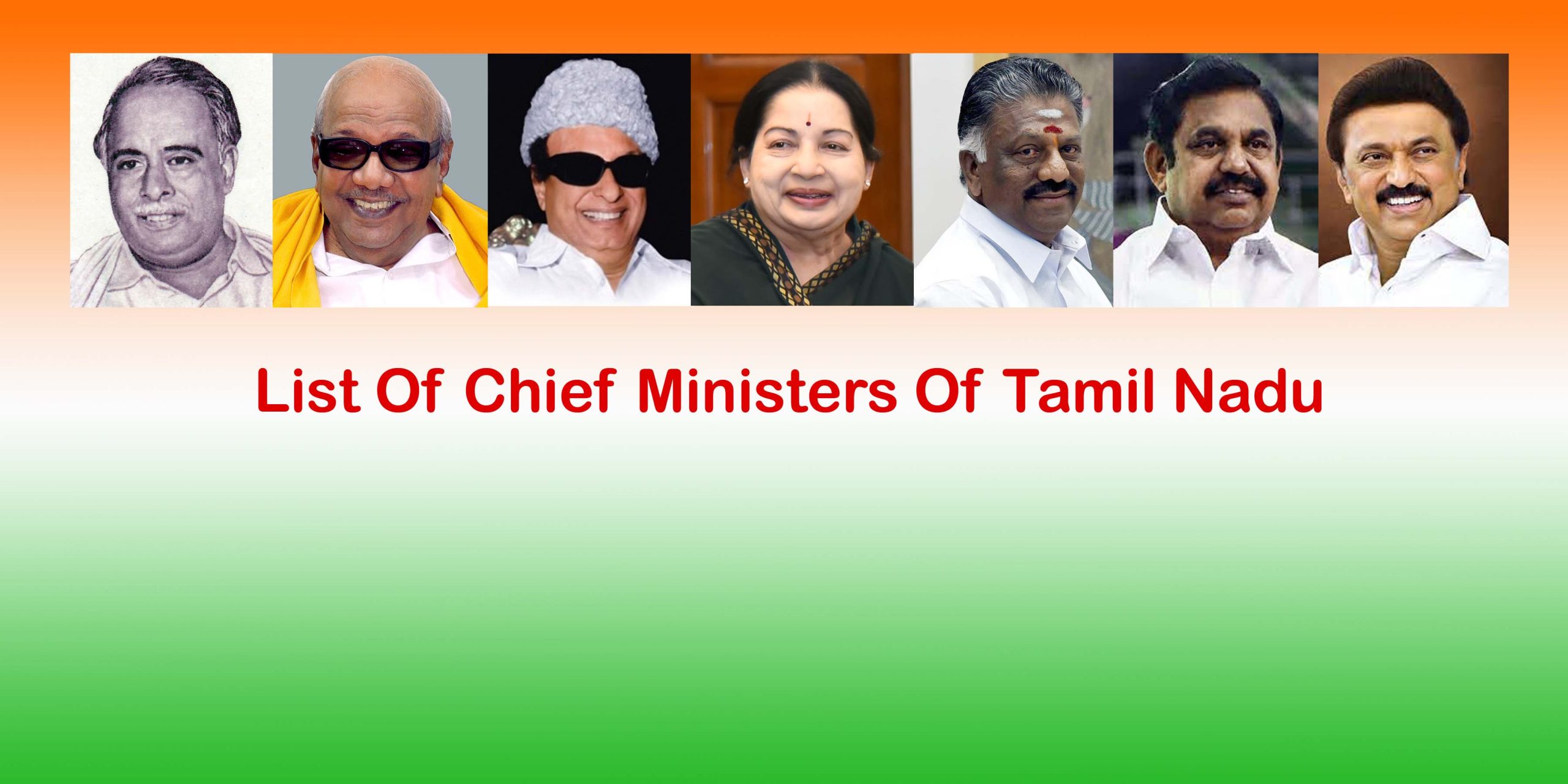
Journey of Chief Ministers of Tamil Nadu Since Independence
With its vibrant culture and bustling politics, Tamil Nadu is a standout region in the south of India. Impressive leaders have guided and influenced this State since its official formation in 1956. It’s a place celebrated for its massive impact on Indian culture, literature, and politics. A Journey of Chief Ministers of Tamil Nadu Since Independence, they have taken turns guiding Tamil Nadu through ups and downs, making big moves to help it grow, face tough times, and evolve.
In A Journey of Chief Ministers of Tamil Nadu Since Independence, we will examine these leaders more closely, discussing the major projects they undertook, the obstacles they encountered, and their lasting impacts on the State.
Let’s dive into the stories of these remarkable leaders and see how they’ve helped shape Tamil Nadu into what it is today.
A Journey Through Leadership: Tamil Nadu Chief Ministers Since 1969
C. N. Annadurai (1969)
Conjeevaram Natarajan Annadurai, fondly called Anna, was the first Chief Minister of Tamil Nadu after the State was renamed Madras State. He was a prominent writer and Dravida Munnetra Kazhagam (DMK) founder. This Dravidian party played a crucial role in the Dravidian movement in Tamil Nadu.
Key Contributions:
- He launched the two-language policy in Tamil Nadu, focusing on Tamil and English and stepping away from Hindi.
- He started numerous welfare programs, such as providing free education for those in need and setting up a midday meal program for school kids to boost attendance and cut down on dropouts.
- He played a big part in boosting Tamil culture, literature, and heritage.
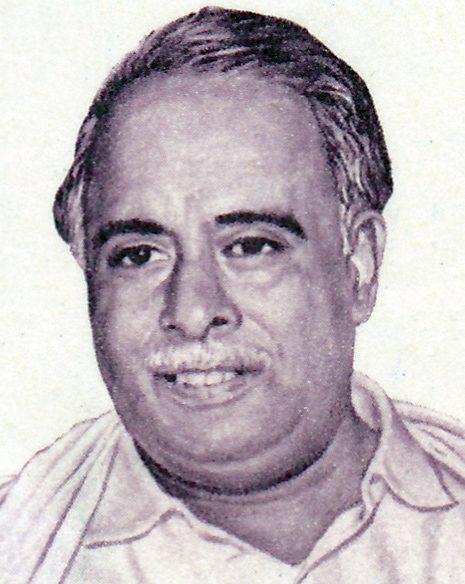
Challenges:
- He tackled balancing the State’s need for independence with the central government’s rules.
- He took on the challenge of changing the administrative language from English to Tamil.
Legacy: People remember Annadurai for his forward-thinking leadership, which shaped Tamil Nadu’s unique linguistic identity, and his dedication to social welfare. His passing in 1969 brought a close to a genuinely impactful chapter in the State’s political history.
M. Karunanidhi (1969-1971, 1971-1976, 1989-1991, 1996-2001, 2006-2011)
Muthuvel Karunanidhi stepped into Annadurai’s shoes as Chief Minister and became a giant in Tamil politics for more than 60 years. He was an incredible writer and speaker and played a significant role in shaping the Dravidian movement.
Key Contributions:
- He boosted Tamil Nadu’s infrastructure with water, transportation, and housing projects.
- He improved social welfare programs, especially in education and healthcare, making the State a model for social development.
- He championed Tamil culture and literature, making Tamil Nadu a hub for Dravidian ideas.
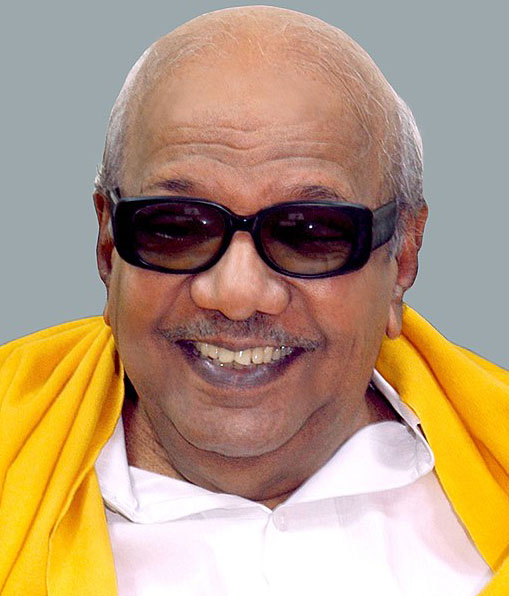
Challenges:
- He navigated through several political controversies and faced accusations of corruption during his time in office.
- He worked on finding the right balance between industrial expansion and its environmental and societal effects.
Legacy: People remember Karunanidhi for playing a significant role in developing Tamil Nadu, his dedication to helping the less fortunate, and his strong support for the State’s independence.
M. G. Ramachandran (1977-1980, 1980-1985, 1985-1987)
Maruthur Gopalan Ramachandran, better known as MGR, was a superstar turned politician who captured the hearts of many in Tamil Nadu. After making a big name in the Tamil movie scene, he ventured into politics and became the Chief Minister. He started his All India Anna Dravida Munnetra Kazhagam (AIADMK) party, breaking away from the DMK. As Chief Minister, MGR won the people’s love and used his fame to advocate for political and social changes.
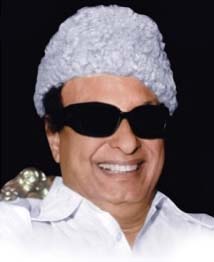
Key Contributions:
- He launched the Midday Meal Scheme to encourage more children to attend school, fight child malnutrition by providing free meals to children at school, and set a new standard in education and child care.
- He put much effort into improving life in rural areas and reducing poverty with different welfare programs.
- He prioritized health care and education, implementing free medical help for the poor and financial support for students.
Challenges:
- He had to carefully manage Tamil Nadu’s budget while rolling out many welfare programs.
- He tackled caste-based inequalities and fought to ensure fair treatment for everyone in society.
- He dealt with political tensions, challenges from opposition parties and disagreements within his party.
Legacy: People celebrate MGR as a leader who genuinely connected with them, blending his movie star charm with his political life in a way that won the public’s heart. His focus on helping others, primarily through the Midday Meal Scheme, inspired similar efforts all over India. Even though some didn’t agree with his strong leadership style or his economic decisions, MGR’s groundbreaking work in social welfare and his lasting impact on Tamil Nadu’s politics are still honoured today.
J. Jayalalithaa (1991-1996, 2001, 2002-2006, 2011-2014, 2015-2016)
Jayaram Jayalalithaa was a famous film actress who became an influential political figure and the first female Chief Minister of Tamil Nadu. She led the All India Anna Dravida Munnetra Kazhagam (AIADMK), one of the State’s major political parties.
Key Contributions:
- She started the Amma Canteen scheme to offer everyone affordable food, water, and cement.
- She put in place a bunch of programs aimed at helping women, kids, and older people.
- She improved Tamil Nadu’s infrastructure, especially ensuring enough electricity for everyone.
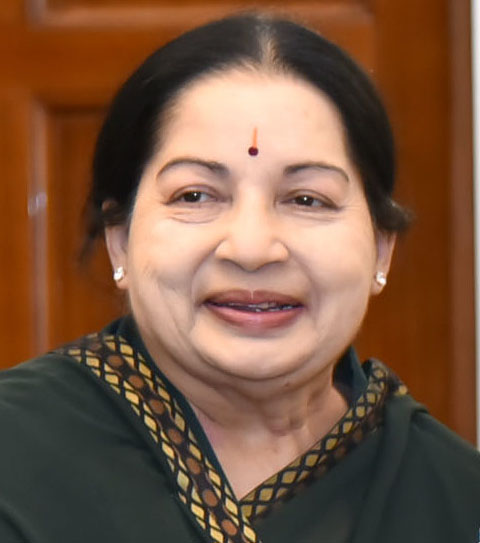
Challenges:
- During her time in office, she faced accusations of corruption and having assets that didn’t match her income.
- She had to handle natural disasters and make sure the response to them was quick and effective.
Legacy: Jayalalithaa earned fame for her policies that reached out to ordinary people, earning her the loving nickname “Amma” (Mother). Her leadership and governance have made a deep and lasting impression on Tamil Nadu’s politics and society.
O. Panneerselvam (2001-2002, 2014-2015, 2016-2017)
O. Panneerselvam, also known as OPS, is a well-known face in Tamil Nadu politics and a vital All India Anna Dravida Munnetra Kazhagam (AIADMK) member. Famous for his dedication to the party’s leader, J. Jayalalithaa, OPS often stepped up as the Chief Minister during critical times, especially when Jayalalithaa was dealing with legal issues.
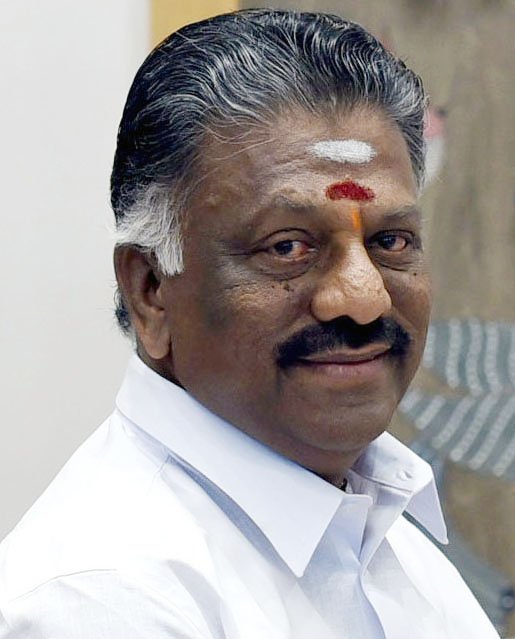
Key Contributions:
- He kept the government stable and running smoothly during challenging political times, such as when J. Jayalalithaa faced court cases.
- He put Jayalalithaa’s welfare projects into action, ensuring programs like the Amma Canteen kept helping those in need.
- He concentrated on managing water and improving farming policies to help Tamil Nadu’s farming community, including assisting farmers in recovering from droughts.
Challenges:
- He had to lead while many saw him as a temporary leader, sometimes challenging his policies and decisions to stand out.
- He dealt with disagreements within his party, the AIADMK. He worked to keep the party united, especially when Jayalalithaa wasn’t around.
- He faced the tough job of handling the State’s money problems, trying to keep up with welfare programs without overspending.
Legacy: O. Panneerselvam is known for becoming a reliable leader and keeping the government running smoothly through political and legal storms. Although some criticized him for not having enough independence, people recognize his work in maintaining welfare programs and changing agriculture. His skill in dealing with his party’s internal challenges, especially after Jayalalithaa’s time, has made him an essential player in Tamil Nadu politics.
Edappadi K. Palaniswami (2017-2021)
Edappadi K. Palaniswami, also known as EPS, became the Chief Minister of Tamil Nadu during a rocky time for the All India Anna Dravida Munavida Kazhagam (AIADMK) after J. Jayalalithaa’s passing. During his time in office, he focused on strengthening his position in the party and leading a state dealing with economic, social, and environmental issues.
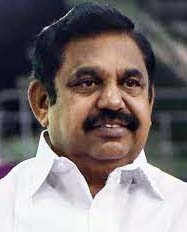
Key Contributions:
- He focused on improving infrastructure, such as transport, water management, and city development, to boost Tamil Nadu’s role as a top industrial player.
- He started the Kudimaramathu scheme to fix up water bodies across the State, helping to save water and make farming more productive.
- He worked on improving healthcare and education, including growing the Amma Mini Clinic scheme to make healthcare more accessible.
- He stood up for Tamil Nadu’s rights in fights over water with other states, playing a big part in talks to ensure the State had enough water.
Challenges:
- After Jayalalithaa’s passing, he had to deal with political ups and downs and splits within the AIADMK, which tested his leadership and ability to govern.
- During the global economic downturn and the COVID-19 pandemic, he tackled economic hurdles like creating jobs and growing industries.
- He led Tamil Nadu’s fight against COVID-19, handling everything from healthcare readiness and lockdowns to the rollout of vaccines.
Legacy: Edappadi K. Palaniswami is known for skillfully handling Tamil Nadu’s administration during uncertain political times and making significant contributions to infrastructure and water conservation. Despite initial doubts about his leadership skills, EPS became a crucial figure in Tamil Nadu politics. He guided the State through economic and health crises, focusing on development and social welfare programs. During his time in office, he has significantly impacted Tamil Nadu’s journey towards sustainable development and resilience in facing future challenges.
M. K. Stalin (2021-Present)
Muthuvel Karunanidhi Stalin, the son of M. Karunanidhi, became Tamil Nadu’s Chief Minister in 2021. He’s been in politics for many years. He has held important positions in the DMK party and the government during that time.
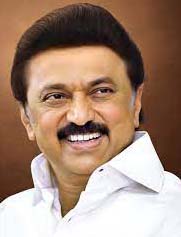
Key Contributions:
- He worked hard to improve the State’s healthcare system, especially in the face of the challenges brought on by the COVID-19 pandemic.
- He aimed to boost the economy by focusing on industrial and technological growth without forgetting social welfare programs.
- He pushed for water conservation and environmentally friendly farming methods to address the problems of water scarcity and climate change.
Challenges:
- He handled how the State dealt with the COVID-19 pandemic, from organizing vaccine rollouts to improving healthcare facilities.
- He tackled the issue of joblessness and worked on getting the economy back on its feet after the pandemic.
- He actively pursued the State’s development, ensuring it proceeded in an environmentally friendly way.
Legacy: It’s a bit soon to summarise Stalin’s legacy entirely, but he was known for tackling immediate problems like the pandemic head-on. At the same time, he kept an eye on the future, aiming for sustainable growth and focusing on social welfare.
Conclusion:
The history of Chief Ministers in Tamil Nadu shows how the State’s politics have changed over time and how this has affected India. From Annadurai’s early changes to Stalin’s current leadership, every leader has added something special to Tamil Nadu’s story. Their successes and the hurdles they faced are shaping what comes next for the State. As Tamil Nadu heads into the future, A Journey of Chief Ministers of Tamil Nadu Since Independence will surely guide its way, showcasing a deep history of leadership that mixes old ways with new changes.
On Postswirl blogging site, In A Journey of Chief Ministers of Tamil Nadu Since Independence, take a closer look at their achievements. The hurdles they faced and the difference they have made in bringing the state forward.




